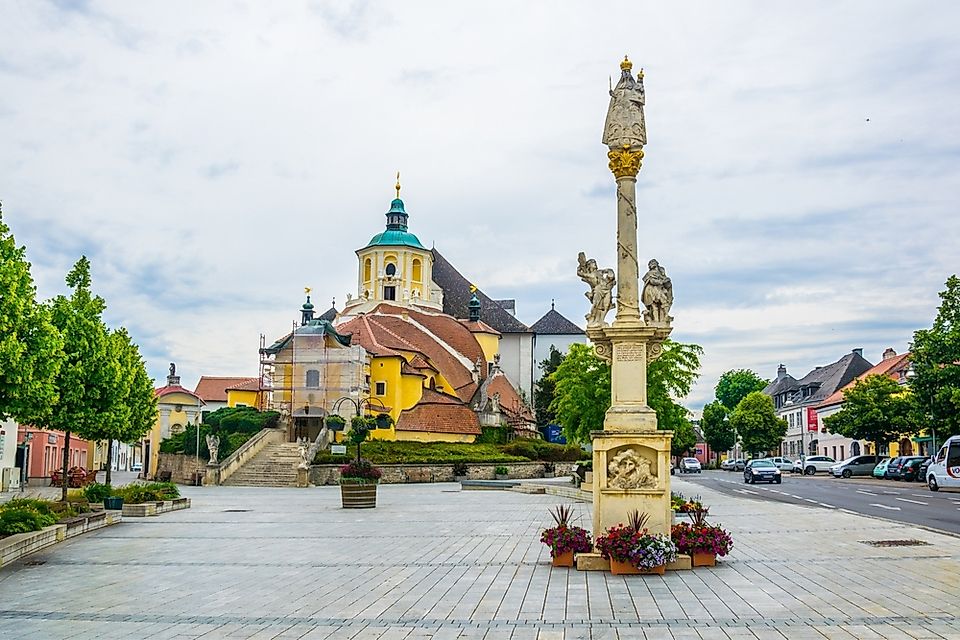Joseph Haydn - Famous Composers in History

Joseph Haydn was a renowned Austrian musical composer from the Classic era. Haydn was instrumental in the establishment of chamber music, including the piano trio, and his unique contribution to the musical form, especially the symphony and quartet. Haydn was mentor and friend to Mozart, who later taught Beethoven.
Early Life
Franz Joseph Haydn was born in Rohrau, Austria on March 31, 1732. He was the second son of Maria Koller and Mathias Haydn, a skilled wheelwright. Although his father could not read music, he was an enthusiastic folk singer, and his parents noticed that Haydn was gifted musical. Therefore, when he turned six years old, they accepted a proposal to allow young Haydn to become an apprentice of Johann Matthias, a choirmaster and a schoolmaster, who would be able to train Haydn.
Haydn learned numerous musical instruments while under the tutelage of Matthias and was allowed to sing in the church choir. When Haydn turned 8 years old, Georg Reutter, the director of the musicals from St. Stephen’s Cathedral, heard him sing and he invited Haydn to become a chorister. His parents accepted Reutter’s offer, and in 1740 he relocated to Vienna and worked as a chorister for nine years. However, Haydn was expelled from the school at age 17 after he trimmed the pigtail of another chorister.
Career
After being expelled, Haydn found refuge with other musicians and supported himself by doing numerous musical odd jobs. He later met Italian composer Nicola Porpora, who helped him further develop his compositions. As his artistic skills improved, Haydn started gaining public reputation first as an opera composer for his work Der krumme Teufel, which he wrote for Johann Joseph Felix Kurz. In 1753 Haydn was introduced to Baron Carl Furnberg, who employed him to play music in his home and also to write for his instrumentalists. Furnberg recommended him to Count Morzin, who hired Haydn in 1757 as a Kapellmeister.
Under Morzin, Haydn directed a small orchestra and wrote his first symphonies. He was later employed as Vice-Kapellmeister by Prince Anton of the Esterhazy family, but took over as Kapellmeister of the Esterhazy family's musical establishment after the previous Kapellmeister, George Werner, died. Haydn worked with the family for 30 years and composed numerous symphonies for the orchestra, which he performed for many noble families.
Major Contributions
Haydn mentored Wolfgang Amadeus Mozart, and they often played in a string quartet together, and this resulted in Mozart later producing the "Haydn" Quartets. Haydn wrote numerous string quartets while working for the Esterhazy family, and some of his famous works were written in the minor keys, including Trauersymphonie in E minor and Piano sonata in C minor. Haydn was a prolific composer, and his work included over 20 operas, 47 piano sonatas, 108 symphonies, 68 quartets, 32 divertimenti, 14 masses and six oratorios, among others.
Challenges
During his early years studying under Matthias and also as a chorister, Haydn often struggled to find something to eat, and this motivated him to sing well so that he would be invited to sing for aristocrats where the organizers provided refreshments. After being expelled Haydn took numerous odd musical jobs just to earn a living, while learning different instruments and also composing.
Death and Legacy
By 1803 Haydn had become sick, and his condition made it impossible for him to concentrate. Haydn suffered from what many people believed to be arteriosclerosis until May 26, 1809, when he collapsed after playing his "Emperor's Hymn" and was taken to his deathbed. Haydn died on May 31,1809, at age seventy-seven.
Haydn played a significant role in transforming symphonies and quartets. In fact, he is remembered by many as the father of symphonies and quartets. His work played an important role in developing the sonata form. The F minor variations for piano, which he wrote after the premature death of Maria Anna von Genzinger, are the most popular piano works ever written by Haydn.











